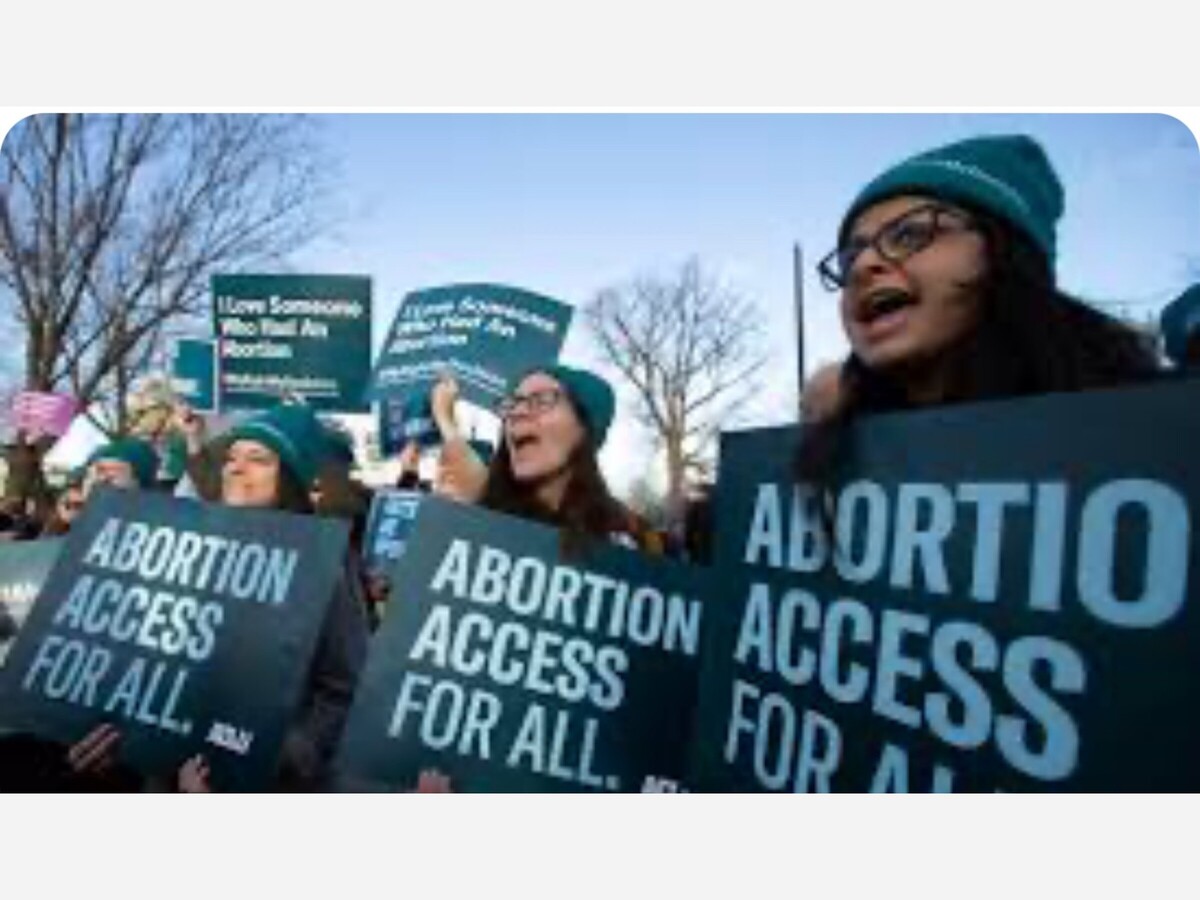Image

Abortion is making the headlines in Texas and New Mexico this week as the fallout continues as a result of the Supreme Court pushing abortion laws back to the states.
Kate Cox, a mother of two who is around 20 weeks pregnant, found out just after Thanksgiving that her developing fetus has trisomy 18, a fatal diagnosis. Seeking to terminate the pregnancy to protect her health and future fertility, she and her husband sought a court order to block Texas’ abortion bans from applying in her case.
A state district judge granted the request Thursday, but then the state Supreme Court temporarily paused the lower court’s order Friday. On Monday evening, the Texas Supreme Court directed the lower court to vacate its order. The legal finding from the Texas State Supreme Court can be read at https://www.txcourts.gov/media/1457645/230994pc.pdf
"A woman who meets the medical-necessity exception need not seek a court order to obtain an abortion," the court wrote in its decision, adding: "The law leaves to physicians — not judges — both the discretion and the responsibility to exercise their reasonable medical judgment, given the unique facts and circumstances of each patient."
Before the Supreme Court issued its ruling, Cox’s lawyers have stated that she intended to proceed with the lawsuit despite seeking an out-of-state abortion. Cox has had to seek medical care outside Texas "due to the ongoing deterioration" of her health and interpretation of the laws of the state of Texas.
In a statement issued by Nancy Northup, the president and CEO of the Center for Reproductive Rights, said: "This past week of legal limbo has been hellish for Kate. Her health is on the line. She’s been in and out of the emergency room and she couldn’t wait any longer."
"She desperately wanted to be able to get care where she lives and recover at home surrounded by family," Northup added. "While Kate had the ability to leave the state, most people do not, and a situation like this could be a death sentence."
Kate recently received confirmation that her pregnancy has a lethal condition—Trisomy 18—and has no chance of survival. Due to Kate’s medical history, her OB-GYNs warned her that continuing to carry the pregnancy could jeopardize her health and future fertility. However, she was unable to get an abortion in Texas due to the state’s extreme abortion bans.
The Texas Supreme Court recently heard arguments in Zurawski v. State of Texas, a different case filed by the Center on behalf of two OB/GYNs and 20 women who were denied abortions in Texas while experiencing severe and dangerous pregnancy complications. In that case, the Center has asked the Court for clarity on the meaning of the medical exception in the state’s abortion bans so that doctors understand who they can help. Kate’s situation underscores the need for that clarity.
The complete text to the statement can be found at https://reproductiverights.org/texas-woman-who-needs-emergency-abortion…
Cox’s condition of Trisomy 18 is random, occurring in around 1 out of every 2,500 pregnancies, according to the Cleveland Clinic. At least 95% of fetuses with the condition don’t survive to full term, meaning pregnancies end in miscarriage or babies are stillborn. Almost 40% don’t survive labor, and less than 10% live past their first year.
The condition causes multiple anomalies that prevent babies from surviving outside the womb, such as brain, facial, cardiac and abdominal wall defects.
Cox’s lawsuit is among the first of its kind — very few pregnant women have filed legal challenges to their states’ abortion restrictions.
Meanwhile abortion is legal in New Mexico, where the state repealed a 1969 ban on the procedure in 2021. Post-Roe, abortion rates in New Mexico have more than tripled as surrounding states have banned or restricted the procedure. Clinics forced to close in nearby Texas and Mississippi have even relocated to the state.
Otero County and the City of Alamogordo passed a meaningless resolution claiming each as a sanctuary for the unborn but it had no force of law and was nothing but a PR stunt championed by a novice and irrelevant state legislator and his domestic partner (voted out of office) seeking attention.
More conservative areas of New Mexico responded by passing their own local ordinances restricting abortion providers in violation of state law but as an act of defiance with teeth for battle. This week, the state Supreme Court will hear arguments about whether these de facto local bans are lawful.
In January this year, Democratic Attorney General Raúl Torrez asked the state Supreme Court to nullify those ordinances in Roosevelt and Lea Counties and the cities of Clovis and Hobbs. Torrez is claiming they violate the New Mexico Constitution's equal protection clause and exceed local governments' authority to regulate health care.
Since then, two more localities passed local abortion restrictions and the state Legislature enacted a new law prohibiting local governments from restricting access to reproductive health care.
The stakes could be higher than just access to reproductive health care in New Mexico. All the local ordinances cite a 150-year-old federal law known as the Comstock Act, which prohibits the mailing of anything that could be used to induce abortion.
The law has been largely dormant for decades, but anti-abortion activists say that by citing the federal law in local ordinances, they hope to escalate the matter to the Supreme Court of the United States.